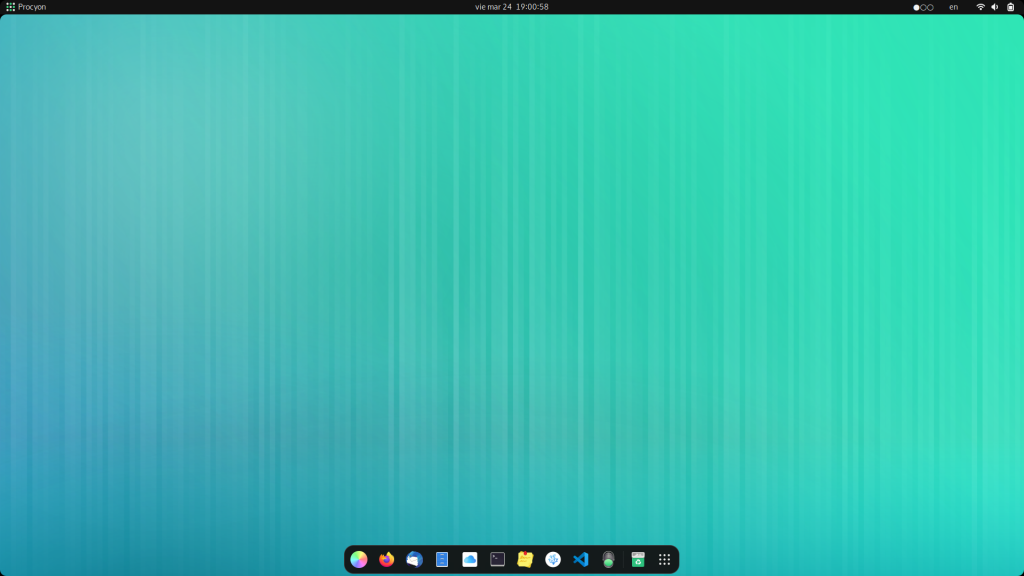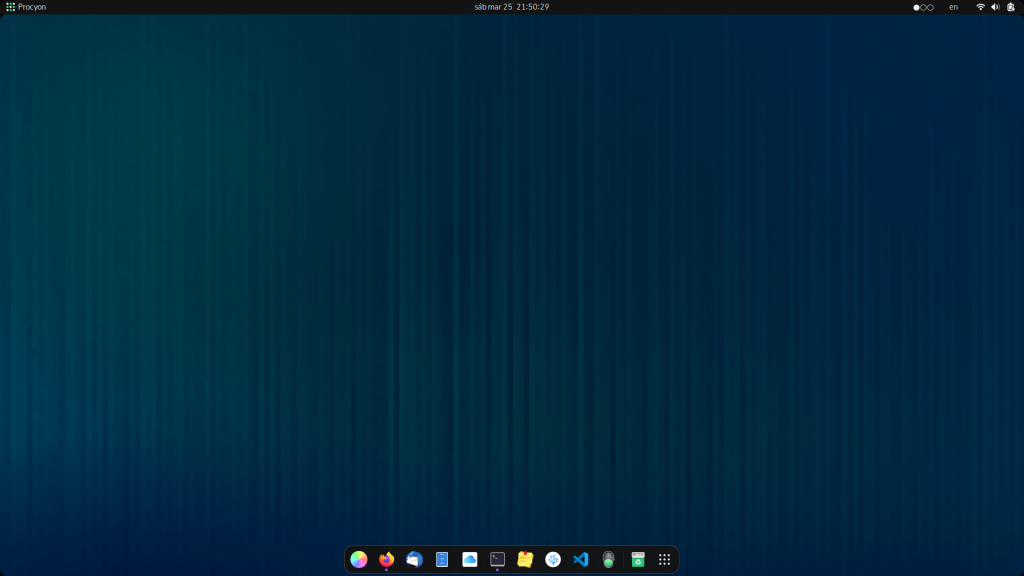
- Ubuntu 22.04 (tampoco es que importe… de hecho llevo tiempo pensando en cambiar a Fedora o Debian).
- Escritorio: GNOME 42
- Tema Shell: Adwaita, claro/oscuro segun el momento.
- Tema: Adwaita, claro/oscuro segun el momento.
- Color de acento: Indigo/Purple
- Iconos: Adwaita
- Extensiones:
- Dash to Dock
- Night Theme Switcher
- Workspace Indicator
- Panel Corners
- Replace Activities Text (con icono personalizado)
- Wallpaper: Chakra Sirius
Estoy probando las apps de la tienda de FlatHub y estoy muy contento, sobre todo con Spot. Tambien he descubierto hace poco VSCodium. La verdad es que me dio pena cuando quitaron las esquinas redondas de GNOME, pero nada que no arregle una extension.
Entre todo esto y la soltura que tengo ya con la terminal, y la integracion por ssh con los servers y con github, me siento muy comodo y capaz. Y eso es clave en una estacion de trabajo.
Bonus: Night version 🙂



